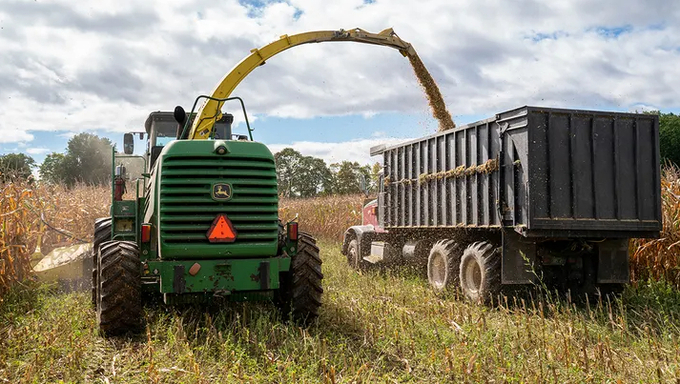November 25, 2025 | 16:09 GMT +7
November 25, 2025 | 16:09 GMT +7
Hotline: 0913.378.918
November 25, 2025 | 16:09 GMT +7
Hotline: 0913.378.918

Mexico's proposed ban on genetically modified corn will "affect farmers all over the United States," Hinkel Farms' Elizabeth Hinkel said on "Mornings with Maria" Tuesday, January 31, 2023. Photo: Getty Images
A regulatory move within Mexico’s agricultural sector has U.S. farmers concerned it will "corn-er" their corn crop production.
"Most farmers, my generation and younger, have never even used conventional corn. We're not set up to do it. We don't have the equipment to do it," Hinkel Farms' Elizabeth Hinkel told FOX Business’ Madison Alworth on "Mornings with Maria" Tuesday. "So it would be a huge investment if we had to go back to growing conventional. And on top of that, our yields would be decreased."
American farmers are headed to Capitol Hill to voice concerns about Mexico’s proposed ban on U.S. imports of genetically modified corn, reportedly warning the move could become the most catastrophic thing to happen to corn farmers.
Mexico represents America’s biggest buyer of corn, purchasing more than $10 billion worth of yellow and white U.S. corn last season alone.
"Even though here in Pennsylvania, our corn stays fairly local, our price is still determined by the board," Hinkel explained. "So if that price goes down, it's going to affect farmers all over the United States, no matter where their corn is being sold."
Farmers remain husky about Mexico’s GMO ban as they fear it’ll hit their bottom line.
"I just can't even picture in my mind what this is going to do," Hinkel said. "It's farmers from one end of the United States to the other. It doesn't matter where you sell it or what it's used for, it's going to have an effect."
With the ban set to take effect in 2024, Mexico has claimed that the regulation would help increase its own domestic production. Last week, U.S. trade representative Jayme White met with Mexico’s Under Secretary of Economy for Foreign Trade Alejandro Encinas to further discuss the GMO decision and the countries’ future relations.
Following the meeting, the USDA released this statement: "Mexico's proposed approach, which is not grounded in science, still threatens to disrupt billions of dollars in bilateral agricultural trade, cause serious economic harm to U.S. farmers and Mexican livestock producers, and stifle important innovations needed to help producers respond to pressing climate and food security challenges."
A fifth-generation Nebraska corn farmer, who mainly grows white corn for Mexican consumption, noted he wouldn’t switch to growing non-GMO corn due to environmental and financial consequences.
"Our destinies are tied together. They need us as much as we need them," Nebraska Corn Growers Association Chairman Andy Jobman also told Alworth on Tuesday. "And so we really need to come to the table and just resolve this issue and allow GMO corn to continue going into Mexico."
As Mexico prepares for the potential ban, the country, in the meantime, has passed regulation that discourages exports, including a 50% tariff on any white corn leaving the nation.
(foxbusiness)

(VAN) Brazil's COP30 presidency pushed through a compromise climate deal on Saturday that would boost finance for poor nations coping with global warming but that omitted any mention of the fossil fuels driving it.

(VAN) Poultry farmers in the UK have been warned that they could face one of the worst winters yet for bird flu.

(VAN) Prices of main-crop paddy have risen sharply, with jasmine rice hitting 16,100 baht per tonne — the highest level in years.

(VAN) In Brazil, FAO unveiled a series of reports and initiatives showing how sustainable agrifood systems are a solution to the climate crisis.

(VAN) With names like neodymium and dysprosium, rare-earth elements sound exotic — and their perceived scarcity has only added to the mystique.

(VAN) In a new study published in Trends in Biotechnology, researchers used a gene-editing technology called CRISPR to increase a fungus's production efficiency and cut its production-related environmental impact by as much as 61%- all without adding any foreign DNA.

(VAN) A top official in Beijing’s Cop delegation says China is committed to clean energy – but US’s absence is a problem.